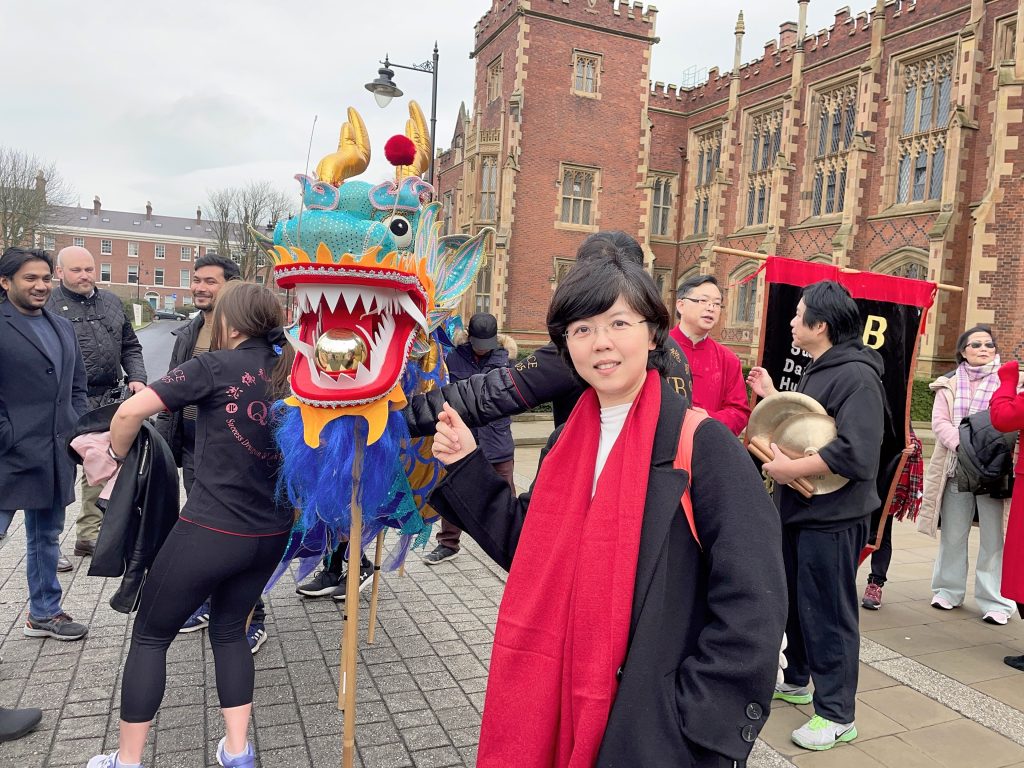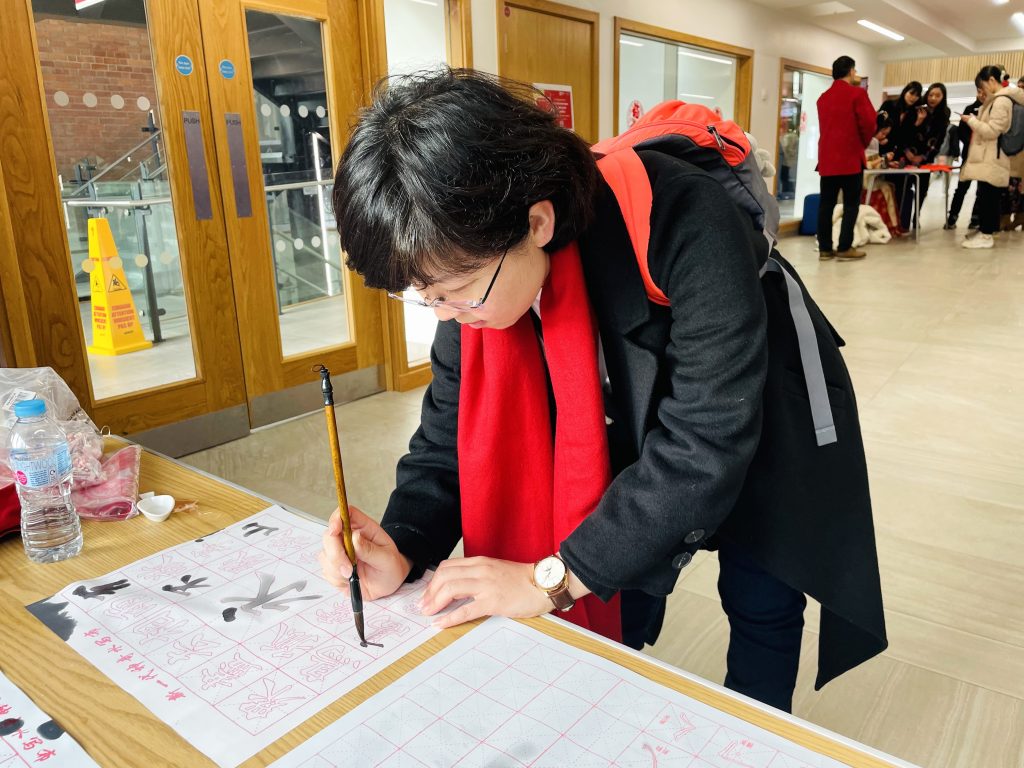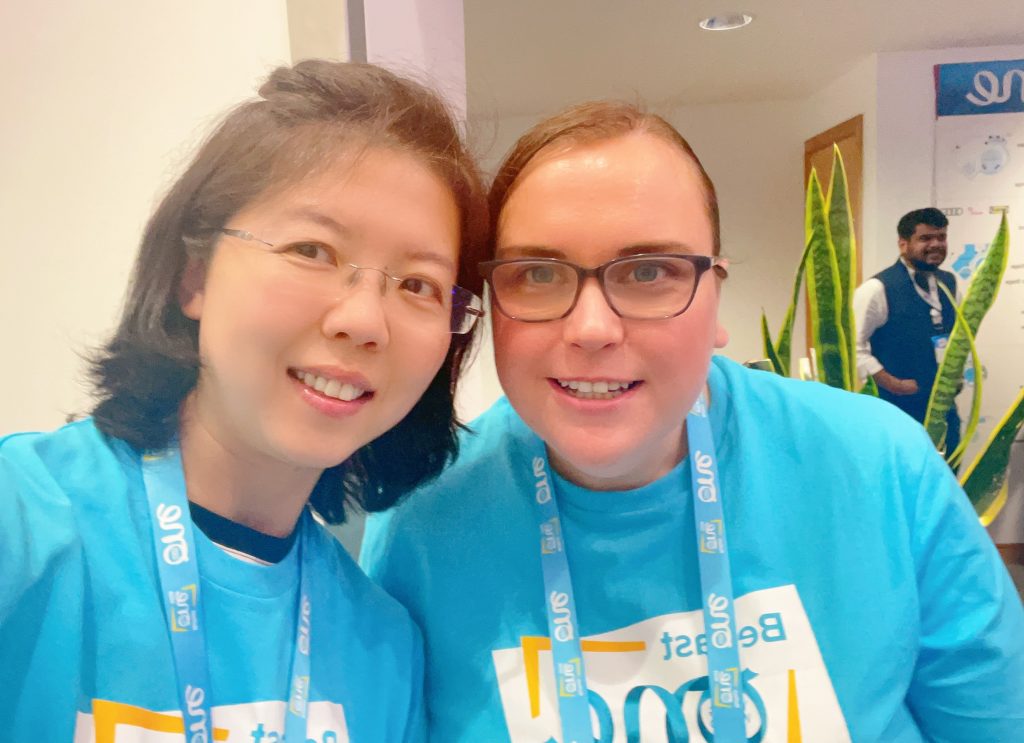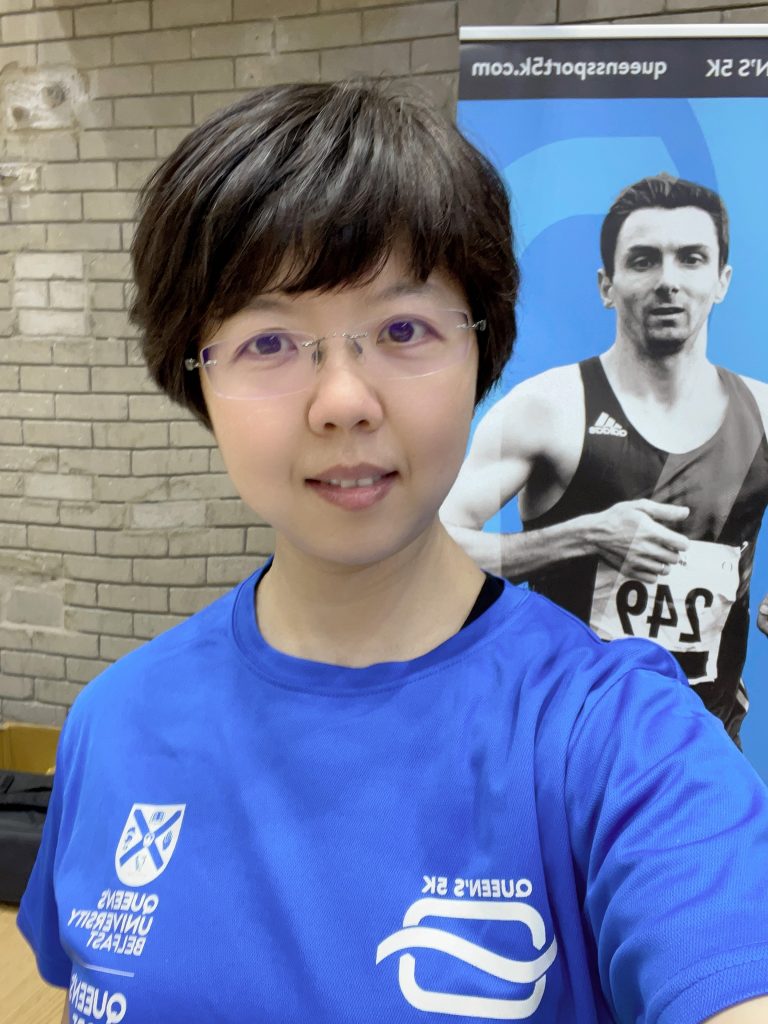Happy International Volunteer Day! On this special occasion this year, we would like to invite you to join in our celebration with Xinxin, one of our proactive students who has had great volunteering (志愿 zhìyuàn) experience at Queen’s and else where.
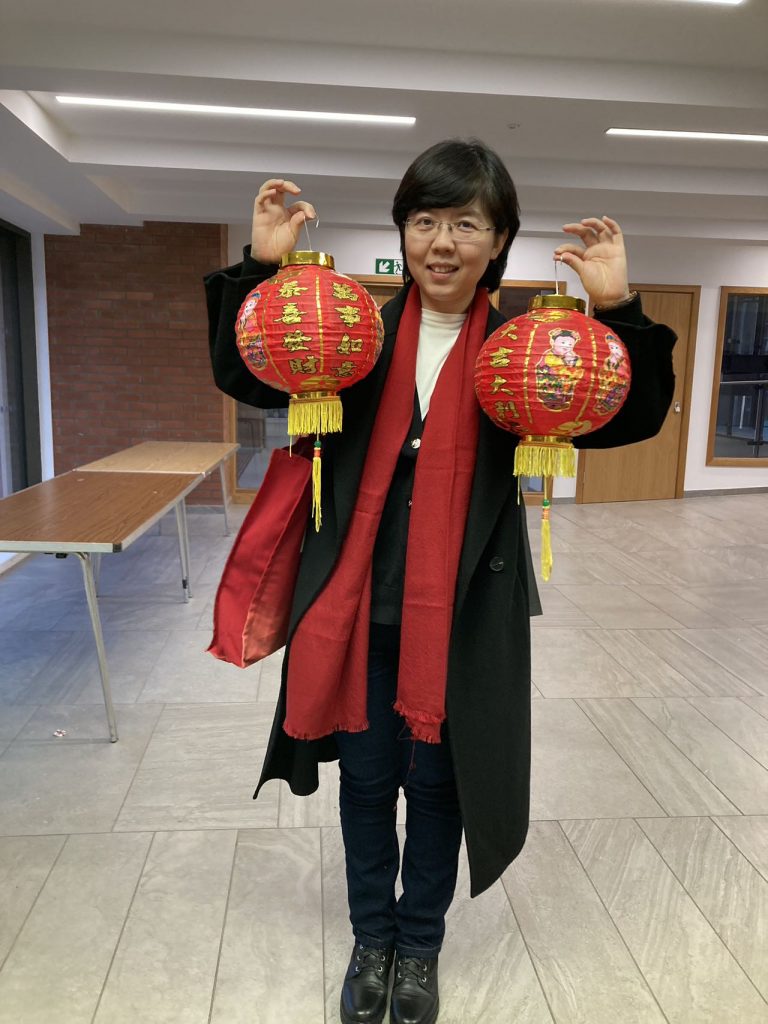
Xinxin WANG (王心欣), a postgraduate from Queen’s Law School, has just successfully completed her Master of Law in International Commercial & Business Law this Winter 2023. She is from Tianjin, China. Before she came to Queen’s, she has had good working experience in China, focusing on accountancy and business advisory services.
Photo of Xinxin at CNY Celebration in 2023 at Queen’s University | Photo Credit: Liang Wang
Volunteering, hard work? Yes! And paid? No! That’s volunteering, but it makes me feel great and meaningful rather than seeking financial rewarding. It brings me a diverse feeling of life and to obtain satisfaction from helping others. There is a saying in Chinese, “与人玫瑰,手有余香 (yǔ rén méiguī shǒu yǒu yú xiāng).
What kind of volunteering experience have you had so far and how did you feel about such volunteering experiences?
In the celebration of the Chinese New Year (Year of the Rabbit) held by our University, I worked with other Chinese students and teachers as volunteers (志愿者 zhìyuànzhě), and I felt great that we could celebrate this most important Chinese festival together at Queen’s. This was my first time celebrating Chinese New Year away from my family. The wonderful experience released me from being overly homesick and helped me earn a sense of joyful reunion with my folks and friends at Queen’s as a big family.
In the ‘One Young World 2023 Belfast’ event, which was a big celebration for the world’s youth leaders in politics, journalism, commercial area, sports and so on, I was the helper for the opening ceremony and workshops. As a volunteer, I could have the opportunity to meet figures who are successful and influential in various industries. I felt grateful that I could have the opportunity to communicate with the organisers and speakers who inspired me with their stories and experiences in different commercial areas, which broadened my horizons and expanded my network with people from different cultural backgrounds. When I received the “Thank You Event” invitation from the organising committee and an invitation to be a referral for a friend in her volunteering work application last week, I felt warm and touched because my efforts and kindness are highly recognised, which also could build my confidence about the future.
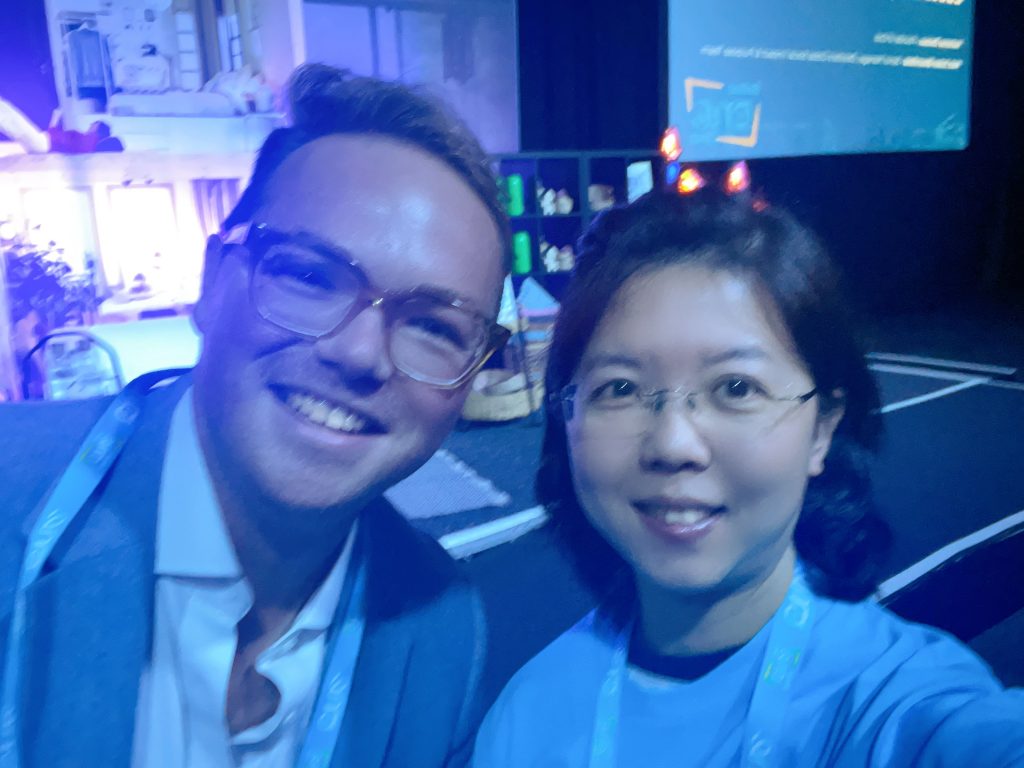
In sport events like the Antrim Coast Half Marathon 2023 and 3K & 5K Running, I assisted with registration and passing waters to athletes during running and I was encouraged by their spirits and enthusiasm towards sports and life.
In the past, I also worked as a volunteer in many events in China, like helping with delivering food and nucleic acid amplification tests during the COVID-19 blocking period; helping in Beijing Olympic Games 2008 and tour guide of Tianjin Museum in 2006. From my volunteering experience, I became more and more knowledgeable and collaborative and made many friends.
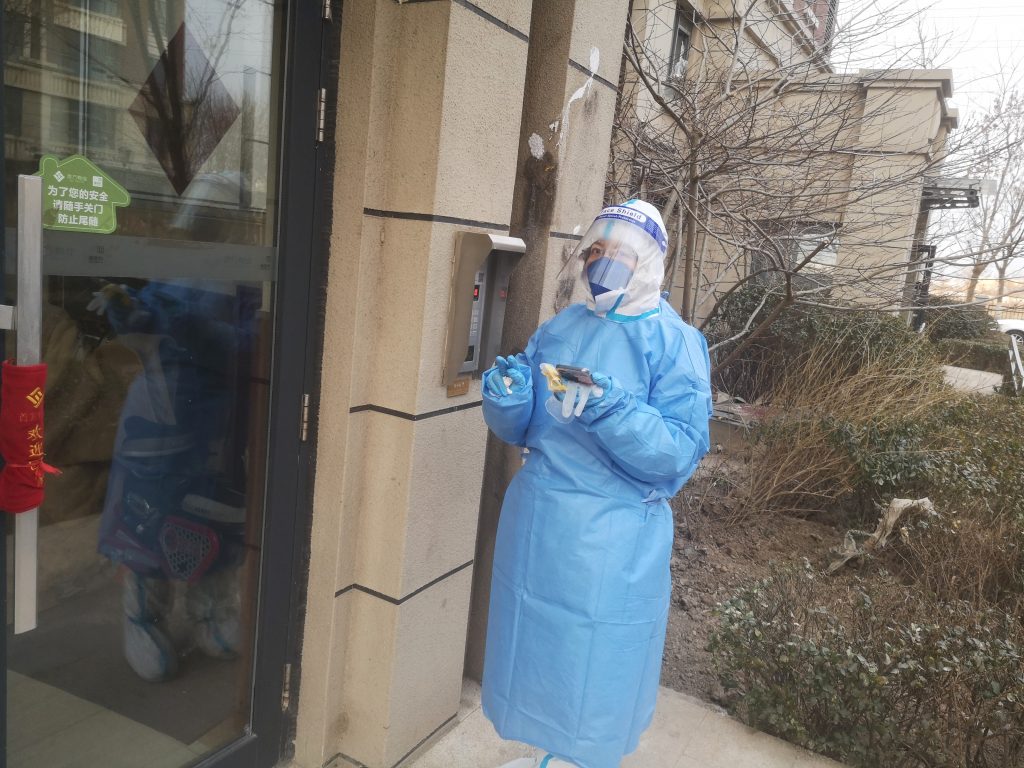
What was the value of volunteering experience to you?
To me, the meaning of volunteering experience is far more than finding a paid work, especially when I study and live abroad, which offers me a sense of belonging and helps to expand my network with diverse team and people with different occupations and cultural backgrounds. More importantly, I could have a chance to know better about the ways of working in my current capacity, which could allow me a quickly adapt to the working environment in the future.
What message would you like to pass on to like-minded people looking for volunteering opportunities?
If you also want to practice in the real world, no matter what your expertise or employability skill are, please do not hesitate to seize the volunteering opportunity, and go for it!

